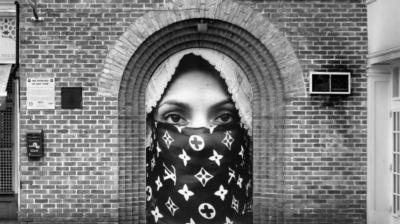COVID-19 and the urgent need to protect Sudanese women against violence
Domestic violence amidst COVID-19 in Sudan
The heightened need for legal reform
Three decades of Islamist rule institutionalized a culture of violence against women in Sudan. The COVID-19 pandemic and state instructed lockdown has led to an acute situation for many Sudanese women suffering domestic abuse, hence reinforcing the urgency to protect them. One of the biggest obstacles is Sudan’s family law, a law that makes it impossible to prosecute domestic violence, especially marital rape. This brief discusses possible law reform, and highlights which steps need to be taken in order to protect women from violence.
Domestic violence amidst COVID-19 in Sudan
Violence against women has been described by UN women as a shadow pandemic. While lockdown may slow the spread of COVID-19, it isolates women with violent partners and separates them from the people and resources that can best help them. Confinement at home under heightened levels of stress, uncertainty and fear, can produce an environment that precipitate violence.
Our recent interviews in June 2020 suggest that survivors of domestic violence and their lawyers are weary of a spike in domestic violence also in Sudan. The lock down confines men to what is culturally perceived to be the woman’s space, namely the home. The feeling of being confined in a space that is predominantly seen as feminine may in itself contribute to a lower threshold for domestic abuse. The number of cases of domestic violence against women and girls has increased during the COVID-19 lockdown in the Sudanese capital Khartoum, according to government officials. A survivor of domestic violence told us in an interview that;
“Despite the risk of COVID-19 my husband goes out frequently without considering any health precautions. He knows I recently have had a serious heart operation. I am worried, but I cannot talk to him because he will beat me”.
Being confined to the home with their abusers, women experiencing domestic violence are unlikely to find opportunity to report such violence. As hospitals are overstretched because of the pandemic and courts are closed during the lock down, survivors of domestic violence become even more vulnerable.
The heightened need for legal reform
The 1991 Muslim Family Law codified by the Islamists in 1991, normalizes domestic violence against women during “ordinary” times. The surge in domestic violence cases during the COVID-19 lockdown, has heightened the need for legal reform.
The law does not recognize marital rape and domestic violence more broadly. The overriding philosophy of the 1991 law is based on male guardianship, qawama in Arabic. One of our interviewees, a 45 year old teacher and domestic violence survivor with five children, describes it like this: “My husband’s power at home is without boundaries”. This gives the male guardian the right to restrict women’s freedoms and the right to make decisions regarding their lives. The punishment for being disobedient often includes different forms of domestic violence including battering, punching, slapping, verbal abuse, bullying, marital rape, and derogatory remarks. According to Sudan Multiple Indicator Cluster Survey 2014 , 34% of the respondents agreed that the husband is justified in beating his wife if she goes out without telling him, if she argues with him, if she refuses to have sex with him or if she neglects the children.
The 1991 law stipulates that a wife is entitled to a dowry (mahr), to maintenance (nafaqa), to receive permission from her husband to visit her parents and maharim (close relatives whom she cannot marry), and to not be subject to physical or psychological harassment. In turn, the wife must care for her husband, be faithful to him, and obey him. The husband is said to have haq alhabs (the right of confinement): The wife must obey him and remain confined at home, unless she obtains his permission. As a direct consequence of the stipulations on obedience (ta’a), the concept of marital rape does not exist within the law. If the conditions stipulated are met, the wife is not allowed to deny her husband sexual intercourse.
This means that physical or psychological abuse can be grounds for divorce, according to the 1991 Muslim Family Law, but it is not seen as a crime in and by itself that the abuser can be prosecuted for. Domestic violence is not mentioned as a crime in the Criminal Code of 1991. In cases of domestic violence, therefore, women are left with the option of seeking divorce to escape such violence, meanwhile her abuser would walk free from prosecution. A female lawyer explained this in an interview with us through the case of domestic violence survivor Amna and how the current lockdown has worsened her desperate situation:
“Amna could not tolerate her husband violence in her village, so she escaped to Khartoum with her children. She lived as guard in a building under construction. Her husband was able to find her and started coming to beat her and take any money she had earned. I helped her to report the case to the police and filed a case for a divorce. With lock down, the courts are closed and she has to tolerate the beatings until they open again”.
Lawyers testify that the beatings must be severe for judges to grant women divorce. She recalled a case where the judge dismissed a case of divorce because he did not think the beating was violent enough.
Courts being in lock down is creating a huge burden on survivors of domestic violence. When bruises are healed, the evidence of abuse also disappears. A lawyer explained this to us in an interview through the case of Nada;
“One woman was aggressively beaten by her husband. Nada went to hospital and after she returned home, she found that the husband had taken her children and disappeared. It took her three days to get back the children, but she lost the opportunity of filing a case for divorce because the wounds on her body that could be used as evidence in court had healed. With the lockdown, she is getting very frustrated and desperate to get a divorce”.
Implications for women’s rights activism
The current three-year transitional period is no doubt an opportunity for women’s rights advocates to push for reform of the family law. Reform of the family law has been on the agenda of the women’s movement since the codification of the law in 1991. Decades of mobilization culminated in the formulation of an alternative law in 2012 under the leadership of the Sudanese Organization for Development and Training (SORD). But after 30 years, no reform of the family law has been enacted.
The transitional government led by Abdallah Hamdok has the mandate, according to the Constitutional Declaration, to “repeal laws and provisions that restrict freedoms or that discriminate between citizens on the basis of gender”. This process have started with the repeal of the infamous public order laws, and the enactment of the Miscellaneous Amendments Act which according to the Minister of Justice “deals with some reforms provided in the Constitutional Document related to amending laws related to human rights and freedoms, particularly the freedom of women and children,". This includes the recognition of women’s right to travel abroad with their children, and criminalization of female genital mutilation.
Women’s rights activists were quick to demand further reforms, especially of the family law. This process is, according to the Minister of Justice, already underway. Thus far, women’s groups have not been consulted. Hampered by the COVID-19 lockdown, they have not been able to voice women’s perspectives and more importantly share their deep knowledge of the law and its disproportionate consequences for women - knowledge they have gained from three decades of mobilization against the 1991 law. As the law deals with highly sensitive issues and is closely linked to Islam, a major reform will meet resistance especially from religious conservatives. Reform advocates are often accused of tampering with religion or of simply dancing to the tune of Western countries.
The easing of the COVID-19 lockdown will be a good time to start mobilizing for reform and to bring different women’s rights activists together. The easing of the lockdown will not only make it possible for various actors to come together physically. It will also give momentum at a time when attention to violence against women is high on the international agenda because of the global increase of abuse during lockdown, and at a time where many Sudanese women have experienced the negative effects of a lockdown first hand. While family law reform is a crucial step to combat domestic violence in Sudan, and something women’s rights activists have been advocating for three decades, this could perhaps also be the time to start discussing a separate law to protect women against violence. In any case, women’s rights activists are weary that gains made during the transitional period may be regressed once the old conservative political parties come to power through general elections after the three-year transitional period. Ratifying the Convention for Elimination of Discrimination against Women (CEDAW) is therefore crucial in the long-term fight for women’s rights in Sudan, including protection against violence.
Recommendations
-
During lock down, the transitional government should consider to re-open family courts or provide digital options.
-
There is an urgent need to reform the family law, and the Ministry of Justice’s consideration of major amendments is a welcome move. It is equally important to give women’s groups a seat at the table in the enactment of a new family law reform.
-
Because of the heightened international attention around the shadow pandemic, there is need for research on domestic violence in different states to provide evidence to mobilize for Sudan’s first separate law on violence against women .
-
In the case of any major legal reform to protect women against violence, it is important to sensitize, make action plans and provide guidelines to health personnel, police and judges to facilitate implementation of relevant amended laws.
-
Ratify CEDAW without reservations to ensure that a reversal of gains made within the transitional period cannot be easily regressed by conservative political parties after the scheduled elections in 2022.
Liv Tønnessen







